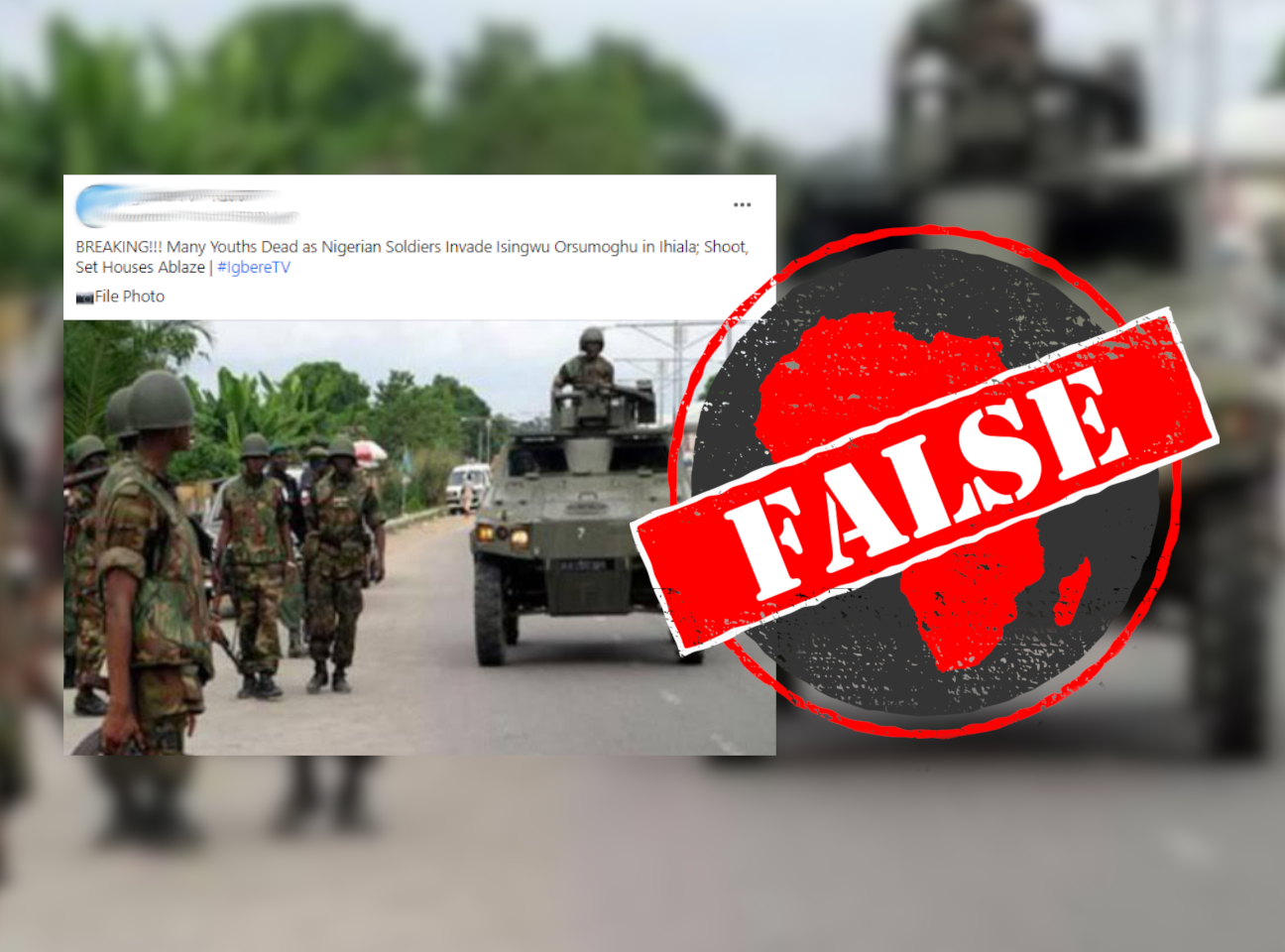“BREAKING!!! Many Youths Dead as Nigerian Soldiers Invade Isingwu Orsumoghu in Ihiala, Shoot and Set Houses Ablaze,” reads a message circulating on Facebook since 11 November 2021.
The Ihiala local government area is in southeastern Nigeria’s Anambra state.
The message first appeared the day after the Independent National Electoral Commission declared Chukwuma Soludo the winner of the 2021 Anambra state governor’s election. The election was held in 20 of Anambra’s 21 local government areas – excluding Ihiala – on 6 November.
Ihiala’s polls were on 9 November, completing the election. As is usual in Nigeria, security agents including soldiers were deployed in the state during the election.
But did soldiers kill “many youths” and burn houses in an Ihiala community during or after the election?

No credible media reports of military invasion in Ihiala
There were dozens of media reports on Ihiala’s election, during and after the polls. None said soldiers had killed young people and burned houses. Given the media scrutiny of the Anambra election, it is unlikely that if the violence had happened it would have gone unreported.
Military invasions in communities in southeastern Nigeria have been well reported since the army began a campaign against the Eastern Security Network, the armed wing of the Indigenous People of Biafra secessionist movement.
The army’s most recent action was in the hamlet of Isingwu in Imama village, Mgbowo in the Awgu local government area of Enugu state on 1 November. Enugu state lies on the eastern border of Anambra state.
Soldiers reportedly killed young people and burned houses in the hamlet. One article on the incident is headlined “Soldiers invade Enugu community, burn houses, kill undisclosed number of youths” – similar wording to the Facebook message.
Police deny claim that soldiers shot man in Ihiala
On Ihiala’s election day, a report by the Foundation for Investigative Journalism that soldiers had shot a man in the local government area circulated on social media.
It claims that “soldiers from a patrol van opened fire on commuters hundreds of metres away from the LGA headquarters and one fell”. The soldiers then reportedly returned shortly afterwards and took the man’s body.
But police in the state said the report was untrue. Police spokesperson Nkeiru Nwode was quoted as saying: “We don’t have such a report and I don’t think something like that happened.”
There was also a report on the day of a clash in which police, soldiers and immigration officers exchanged fire with gunmen in Mbosi Osumoghu, a community near Anambra state’s southern border with Imo state.
But there were no reported casualties.
And there is no evidence that soldiers killed young people and burned houses in Ihiala, Anambra state, on or around 11 November.
Republish our content for free
For publishers: what to do if your post is rated false
A fact-checker has rated your Facebook or Instagram post as “false”, “altered”, “partly false” or “missing context”. This could have serious consequences. What do you do?
Click on our guide for the steps you should follow.
Publishers guideAfrica Check teams up with Facebook
Africa Check is a partner in Meta's third-party fact-checking programme to help stop the spread of false information on social media.
The content we rate as “false” will be downgraded on Facebook and Instagram. This means fewer people will see it.
You can also help identify false information on Facebook. This guide explains how.


Add new comment